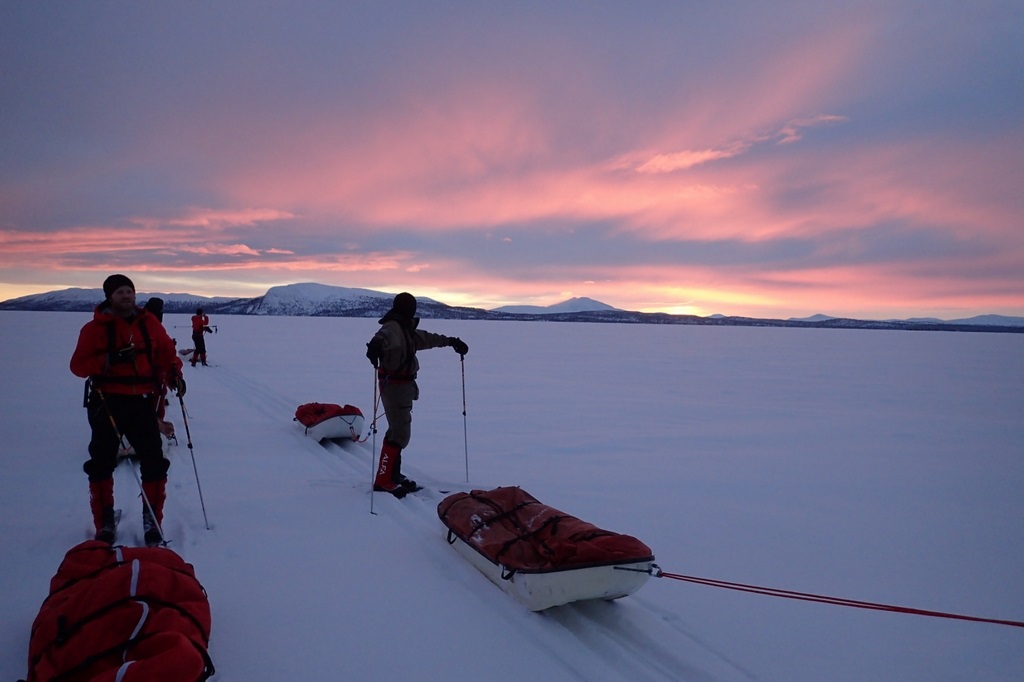Extreme psychology in the South Pole: University researcher to support British Army Reservists as they embark on gruelling Antarctic trek
Date 5.10.2016
5.10.2016
A University of Northampton expert will be analysing the effect of extreme and isolated conditions on the minds of six British Army Reservists as they embark on a three-month trek around Antarctica.
Dr Nathan Smith, Lecturer in Sport Psychology, will be looking at the team’s mindset as they explore the coldest, windiest and most inhospitable place on the planet. The South Pole Army Reserves 2017 (SPEAR17) – a six man-team from the British Army Reserves (formerly known as the Territorial Army) – will endure temperatures as low as -50C during the endurance challenge.
In November 2016, the six men will be dropped by ski plane on the coastline of Antarctica. From there they will attempt to ski over 1,100 miles, unsupported, across the polar continent. The first leg will be to the Geographic South Pole. Once at the Pole they will receive a supply of rations and fuel before continuing onwards over the Titan Dome, down the Shackleton Glacier and onto the Ross Ice Shelf to complete a full traverse of Antarctica. This gruelling challenge has only ever been achieved by six people and never before by a British team.
Each man will be hauling an individual sledge weighing approximately 140kg, which will contain everything he needs to survive for three months on the ice pack. The determined team will be completely self-sufficient, with no outside assistance until they reach the Pole.
The team will face many challenges along the way; they will brave the harsh polar weather, navigate crevasses, endure whiteout conditions and undertake a climb from sea level to 10,000ft, all while hauling their sledges across the ice. The team will also experience extreme mental stress, due to their isolation from the outside world, lack of supplies and contact, and the extreme physicality of their challenge. They are well-prepared – having trained for many months and undertaken numerous exercises.
Dr Nathan Smith’s research will investigate the team’s psychological state throughout the trip, and consider how easily the group transition back into daily life after the expedition. He explained: “The SPEAR17 expedition provides a unique opportunity to collect data that will help understand how to monitor and support the psychological health of those undertaking expeditions in extreme settings. Using a structured diary study approach, we will be able to examine important indicators of daily stress, resilience and optimal functioning in extreme conditions of the Antarctic. A particularly unique dimension to the present work is the continuation of data collection in the post-expedition phase, which will tell us about the psychological experience of transitioning out of the expedition environment and into everyday life. I would like to take this opportunity to thank the team for their support and wish them all the best in their incredible and ambitious endeavour.” Dr Smith is working with Dr Emma Barrett (Lancaster University) and Professor Gro Sandal (University of Bergen) on the research.
Expedition leader, Lou Rudd, added: “More people have landed on the moon than have walked across the continent of Antarctica. We are following in the footsteps of explorers like Shackleton and Scott.”
As a consequence of the expedition the team hope to raise £100,000 for ABF The Soldiers’ Charity; an organisation which aims to help those service personnel that require it most. If you are impressed by their efforts, please consider supporting their cause – for more information, visit: www.soldierscharity.org or www.spear17.org.